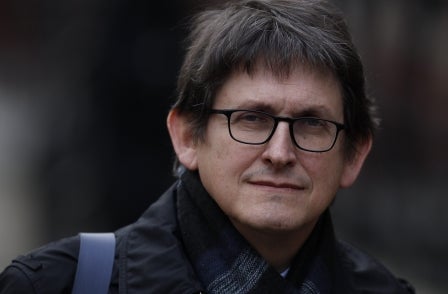
Former Guardian editor Alan Rusbridger has said climate change is the “biggest story of our lives” and believes that the media should change the way it tackles the issue.
In conversation with the Global Editors Network, Rusbridger said: “If we believe that this is the biggest story of our lives — which it probably is — and then you look and see how that translates into how the media covers it, there’s a terrible mismatch between this immensely important story and the way the media deals with it now.”
He added: “Some newsrooms are becoming dominated by metrics. We obsess about what our readers read, or will pay for, or what turns them into subscribers.
“If that’s the guiding principle in your newsroom and if your readers are switched off from reading about climate change, then that is not good news.
“It has to be very prominent on our websites and in our social media feeds, so that the readers then can understand that this is something of enormous importance.”
In 2015, under Rusbridger’s editorship, the Guardian launched the Keep it in the Ground campaign, which encouraged people and organisations to divest themselves of fossil fuel companies.
When people visited the Guardian website they were greeted with black oil covering the screen and used a cover wrap to promote the campaign in print.
Looking back at the campaign, Rusbridger said: “I wanted to do something that readers could play a small part in. Not by switching of their light bulbs at nights or only having one bath a week.
“I thought, what is the thing that is actually going to change something?
“We thought we had to really tackle this as though it was tobacco or arms and try and persuade people to take their money out of fossil fuels.”
He added: “It turned the reader from being the passive recipient of more bad news about the climate into something they could do about it.”
Rusbridger believes that the Guardian campaign was something “radical in journalism” and “had a real result” as it helped to encourage companies such as The World Bank, Lloyds, Axa and the Church of England to stop supporting fossil fuel companies.
However he believes that journalists need to do more to help challenge climate change today.
Rusbridger said: “If we believe that climate change is the most important story in the world, maybe the job has to begin in newsrooms with editors believing that.
“If editors don’t believe that, then you’re never going to be able to get the public to take notice.”
He added: “It wasn’t that we hadn’t taken climate change seriously at the Guardian, I thought we had covered it well. But nevertheless, I thought I was likely to be asked by my children or grandchildren: ‘What were your regrets?’ and I think the answer would be climate change.”
Email pged@pressgazette.co.uk to point out mistakes, provide story tips or send in a letter for publication on our "Letters Page" blog
